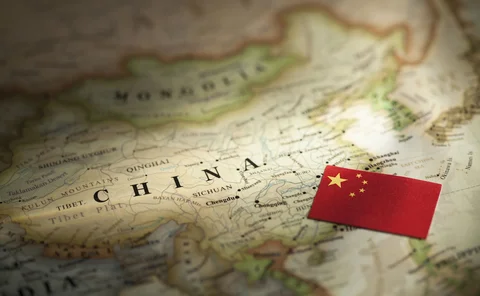Economics
Co-ordinating China’s domestic and international efforts
As China becomes an increasingly significant player on the international stage it can no longer be insular in its policies, writes deputy governor of the People's Bank of China, Yi Gang
Lin Jianhai: The state of the global economy
Secretary general of the IMF Lin Jianhai offers his views on global challenges and China’s economic transition
Han Seung-soo: financial opening and the renminbi
former prime minister of the Republic of Korea Han Seung-soo explains why the time is right for a rethink on the current international financial system as well as China’s role in a proposed new system
The growing role of China in an interconnected world
With global economic health ever more reliant on Chinese growth, Wang Yan, deputy director of the IFF Institute, looks at how structural reforms can help China take a leading role in the future
Reform facilitated by the renminbi’s inclusion in the SDR basket
Ba Shusong, IFF Academic Committee member and chief China economist of The Stock Exchange of Hong Kong examines the significance of the renminbi’s SDR inclusion
Low rates driving up housing share of income – RBA paper
Share of aggregate US income from capital is on the rise, and housing accounts for a large portion; low nominal rates explain strong demand for housing, economist argues
Draghi outlines structural reforms to boost EU productivity
Mario Draghi calls for European structural reforms to concentrate on improving human capital, creating properly functioning markets and tackling restraints on services
Dollar strength behind breakdown in economic paradigm, says Shin
BIS head of research points to failure of covered interest parity post-2008, with the strength of the US dollar correlated with the size of market anomalies
Japanese inflation target a partial success – Fed paper
Authors show adopting inflation target during a liquidity trap can have powerful effects, but in the Japanese case it seems to have been weakened by other factors
ECB paper considers impact of loss in collateral value
Research examines how a loss in value will impact the wider economy by studying the effects of a legal reform in Sweden in 2004; sees potential for ‘negative consequences’
Menon encourages Chinese companies to explore offshore
Managing director of MAS considers connectivity between China and South-east Asia; suggests corporates recycle capital through securitisation
State money and bank money: lifting the fog around QE
Steve Hanke says economists are missing important details by focusing on interest rates, rather than the money supply
ECB papers take detailed look at bond market data
Two papers from the European Central Bank take a detailed look at data on the development of credit spreads in eurozone corporate bonds
Debt levels in most advanced and emerging economies are too high, Dombret says
Belief in ‘more finance, more growth’ is ‘sexy’ but ‘a sham’, Bundesbank executive board member argues; debt levels in most economies are ‘too high’
Helicopter money still contentious as Borio enters debate
Article by Claudio Borio and others claims helicopter money means giving up on monetary policy for ever, but economists such as Adair Turner and John Muellbauer question the result
Book notes: A few hares to chase, by Alan Bollard
The former Reserve Bank of New Zealand governor has produced a interesting account of the life of engineer-turned-economist Bill Phillips
BIS paper: money growth-inflation link weakens, credit link grows
Authors find money growth is less important in driving price changes, but credit growth is becoming a more critical factor in financial crises
Trinidad and Tobago governor predicts GDP contraction of up to 2.5%
Contraction of 2.5% expected amid falling oil prices; co-ordinated fiscal, monetary and structural reforms would increase recovery's chance of success, Hilaire says
Slow growth need not be the ‘new normal’ – Richmond Fed paper
Authors give reasons for optimism about the future of US economic growth, and outline policies that could support it, although most are outside the control of the central bank
Greek deal unlocks funds but delays debt relief
Deal allows possibility of future debt relief but drops IMF’s stronger demands; pushes most difficult decisions back
BoE economists map current account dangers across OECD
Treating the current account as equivalent to the balance of trade could blind economists to the risks posed by large deficits, say Kristin Forbes, Ida Hjortsoe and Tsvetelina Nenova
Fischer: improve estimates of long-run equilibrium rate
Fed vice-chair speaks at conference honouring US economist Michael Woodford; stresses need for "faster potential growth" as US nears full employment
BIS’s Tissot says micro data can plug macro gaps
Data is abundant in many areas, but making micro data work with macro is still proving tricky for statisticians, says BIS head of statistics
Iran must contain liquidity growth to safeguard inflation success, IMF’s Lipton says
Speaking at the Iranian central bank, David Lipton discusses how inflation can be anchored in single digits, after steadily declining in past year





















